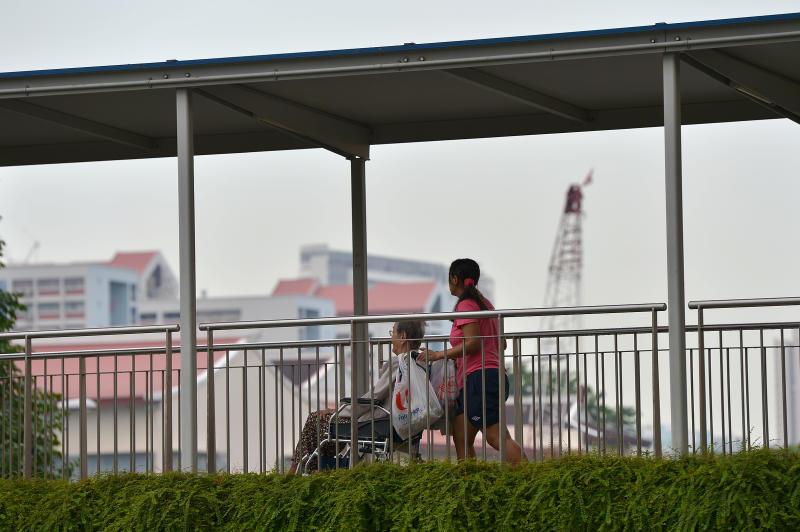Parliament: Crimes against five groups of vulnerable victims set to draw harsher punishments under new Bill
Sign up now: Get ST's newsletters delivered to your inbox

Those who commit offences against vulnerable victims, such as maids and people with disabilities, could face up to twice the maximum punishment for similar crimes against others.
PHOTO: ST FILE
Follow topic:
SINGAPORE - Those who commit crimes against five categories of vulnerable victims could receive doubly harsh punishments.
The five groups are: children, maids, people with physical and mental disabilities, those with whom the offender is in close relationship and those in intimate relationships with the offender.
Under the Criminal Law Reform Bill introduced in Parliament on Monday (Feb 11), those who commit offences against these vulnerable victims could face up to twice the maximum punishment for similar crimes against others.
Currently, offences against vulnerable persons, such as maids and those with mental and physical disabilities, already draw 1½ times the maximum punishment for crimes under the Penal Code.
Additionally, the Bill, which was tabled by Senior Parliamentary Secretary for Home Affairs Amrin Amin, will widen the scope of those considered vulnerable victims.
Besides the existing categories of domestic workers and people with mental or physical disabilities who cannot fend for themselves, three new groups will be added: children under the age of 14, those in close relationships with their offender, and people in intimate relationships with their offender.
Those in close relationships could include people living in the same household and those who have frequent contact with each other.
Meanwhile, the definition of intimate relationships will cover people who share the care and support of a child or are financially dependent on each other, said the Ministry of Home Affairs (MHA) in a release detailing the proposed changes.
Separately, Law and Home Affairs Minister K. Shanmugam had disclosed in November last year that the Law Ministry is considering letting unmarried people in intimate relationships who are being abused to apply for protection orders faster under the Protection From Harassment Act.
The Bill's proposals draw on suggestions made by the Penal Code Review Committee, which submitted a report last year to Mr Shanmugam with recommendations to update the particular law.
Some of the Bill's suggested provisions are also based off feedback from stakeholders in the social, legal, religious, financial and education sectors. The last comprehensive review of the Penal Code was completed in 2007.
The Bill tabled on Monday will update the 150-year-old Penal Code "to ensure that it remains relevant and up to date", said the MHA in a release. If passed, it will also make related changes to other legislation, such as the Criminal Procedure Code, the Children and Young Persons Act, and the Women's Charter.
Should the Bill be passed, a new offence of causing or allowing the death of a child or vulnerable person will also be introduced to cover the scenario in which two or more caregivers within the same household had the opportunity to cause death, but it is unclear whose act caused the death.
This provision, which would apply to the person who committed the unlawful act, as well as to someone who did nothing to stop it, is punishable with up to 20 years' jail, and a possible fine and caning.
In addition, the Bill proposes to raise the minimum age of criminal responsibility from the current age of seven to 10, which is on a par with jurisdictions such as Britain, Wales and Hong Kong.
The MHA said it had considered feedback from the social sector that suggested the bar be raised to age 12. However, this was not taken up.
While the number of arrests of those aged seven to nine was "small", there was an "appreciable increase" in the number of juveniles arrested who were aged 10 and above, and this might require the police to intervene, said the MHA without revealing exact numbers.
This proposed change will be accompanied by the development of a rehabilitation framework to manage children between the ages of seven and 10 who commit offences.
And should the Bill be passed, changes to the minimum age of criminal responsibility will only come into force when this framework is ready, added the MHA.
Correction note: The article has been updated to reflect the fact that close relationships could include people living in the same household and those who have frequent contact with each other. We are sorry for the error.

